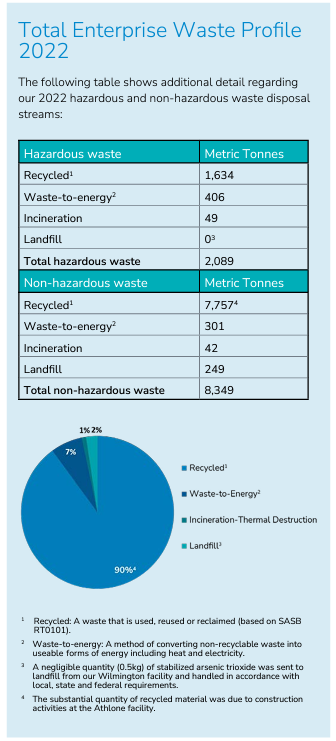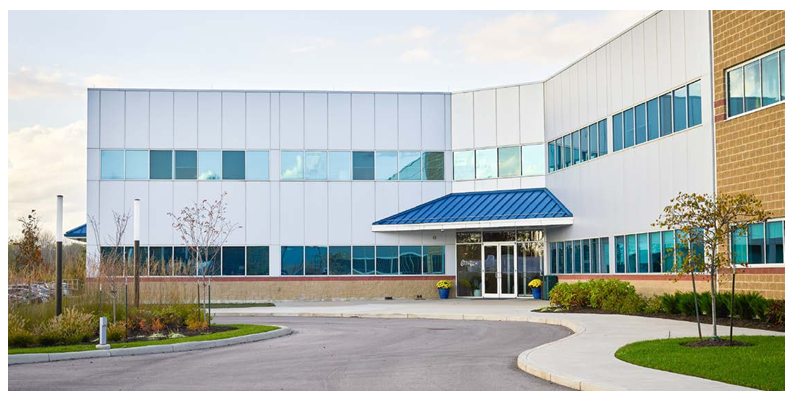Alkermes' Waste Optimization Highlights
Originally published in Alkermes September 2023 Corporate Responsibility Report
All Alkermes facilities have comprehensive waste management plans in place. We strive to reduce our generation of waste at each source and assess opportunities for circularity - a production and consumption model which involves reusing, repairing, refurbishing and recycling existing materials and products to keep materials within the economy.1 In addition, our waste streams are fully segregated, and disposal methods are carefully evaluated to support compliance with statutory and permit requirements and to minimize our environmental impacts. For non-hazardous waste, we actively seek to eliminate landfilling where practicable and pursue recycling, composting or other re-use opportunities. We also employ other forms of responsible disposal, such as treatment in third-party “waste-to-energy” facilities.
For hazardous waste, we recognize that landfill is not an environmentally responsible disposal route. We actively explore recycling opportunities for our hazardous waste and, when feasible, select disposal routes that include potential energy recovery benefits.
Our waste vendors are carefully selected and vetted, in an effort to promote utilization of responsible waste disposal routes only. Through our working relationships with these vendors, we are able to identify and implement new opportunities for responsible waste disposal and further reduction of waste materials.
1https://www.europarl.europa.eu/thinktank/infographics/circulareconomy/public/ index.html#:~:text=A%20production%20and%20consumption%20model,the%20 actual%20amount%20of%20waste
Key 2022 waste optimization highlights at the enterprise level include:
- 98% of total waste generated in 2022 was either recycled (90%), processed in a waste-to-energy facility (7%) or incinerated (1%); and
- 97% of hazardous waste generated in 2022 was either recycled or processed in a waste-to-energy facility and the remainder was incinerated.
Key 2022 waste optimization highlights at our manufacturing facilities included:
- Approximately 99% of hazardous waste from our Wilmington facility was recovered and recycled, and the remainder was incinerated; and
- No waste from our Athlone facility was sent to landfill; 100% of non-hazardous waste and 93% of hazardous waste was either recycled or processed in a waste-to-energy facility, and the remainder was incinerated.
Waste Circularity
In 2022, our Wilmington facility recycled:
- 30 tonnes of heptane;
- 1,528 tonnes of ethanol, representing 97% of the hazardous waste generated at the Wilmington facility.
In addition:
- 44% of non-hazardous waste generated at the Wilmington facility was used in a third party waste-to-energy process, instead of being incinerated as in prior years.



